MS-LS2-2
Construct an explanation that predicts patterns of interactions among organisms across multiple ecosystems.
-
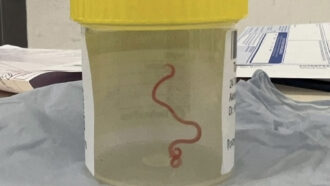 Health & Medicine
Health & MedicineDoctors found a snake parasite in a woman’s brain — still alive
This worm typically infects pythons. Though this is its first known infection in humans, other types of worms also can infect the human brain.
By Meghan Rosen -
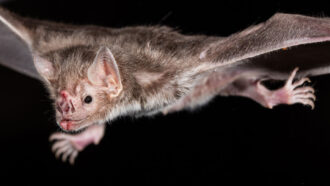 Animals
AnimalsLet’s learn about vampire bats
Vampire bats rarely bite people, instead preferring to feed on animals like cows and horses.
-
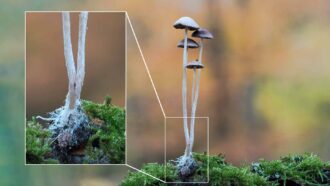 Life
LifeScientists Say: Mycelium
These fibrous networks are the reason plants think fungi are such "fun guys.”
-
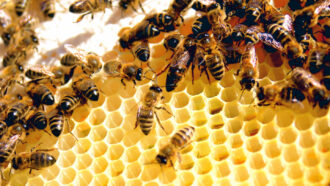 Math
MathBees and wasps devised the same clever math trick to build nests
During nest building, these insects add five- and seven-sided cells in pairs. This helps their colony fit together hexagonal cells of different sizes.
-
 Animals
AnimalsBottlenose dolphin moms baby talk when their calves are near
Around their babies, bottlenose dolphin moms whistle with higher pitches. It’s similar to human parents speaking in baby talk.
-
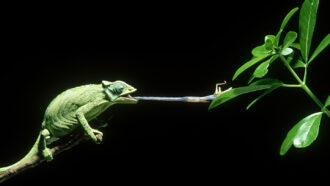 Ecosystems
EcosystemsScientists Say: Predator and Prey
Ecological relationships between predators and their prey drive the evolution of plants, animals and microbes.
-
 Animals
AnimalsNorthern elephant seals snooze only two hours a day at sea
These marine mammals sleep only minutes at a time on months-long trips at sea.
-
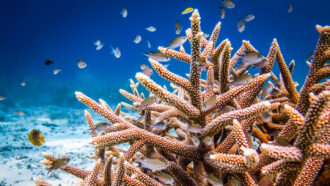 Animals
AnimalsScientists Say: Coral
Over 4,000 species of fish make their home among the reefs created by these colony-dwelling marine animals.
-
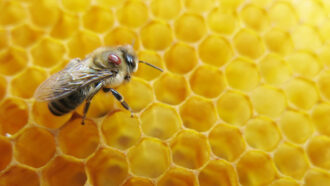 Tech
TechA device spots and counts honeybees hosting a dangerous parasite
At Regeneron ISEF, three teens debuted an infrared system to detect honeybees carrying mites. It can show beekeepers when a colony needs to be treated.
-
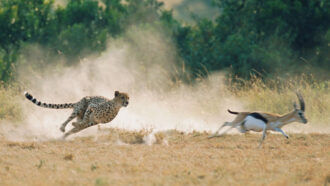 Ecosystems
EcosystemsScientists Say: Food web
All the species in an ecosystem and the feeding relationships between them get summed up with this handy picture.
-
 Animals
AnimalsPeople and animals sometimes team up to hunt for food
Dolphins working with people to catch fish recently made a big splash. But humans have a long history of cooperating with other animals.
-
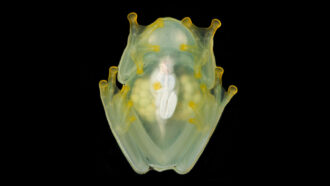 Animals
AnimalsSleeping glass frogs go into stealth mode by hiding red blood cells
Glass frogs snoozing among leaves blend in by hiding almost all their red blood cells in their liver.
By Susan Milius